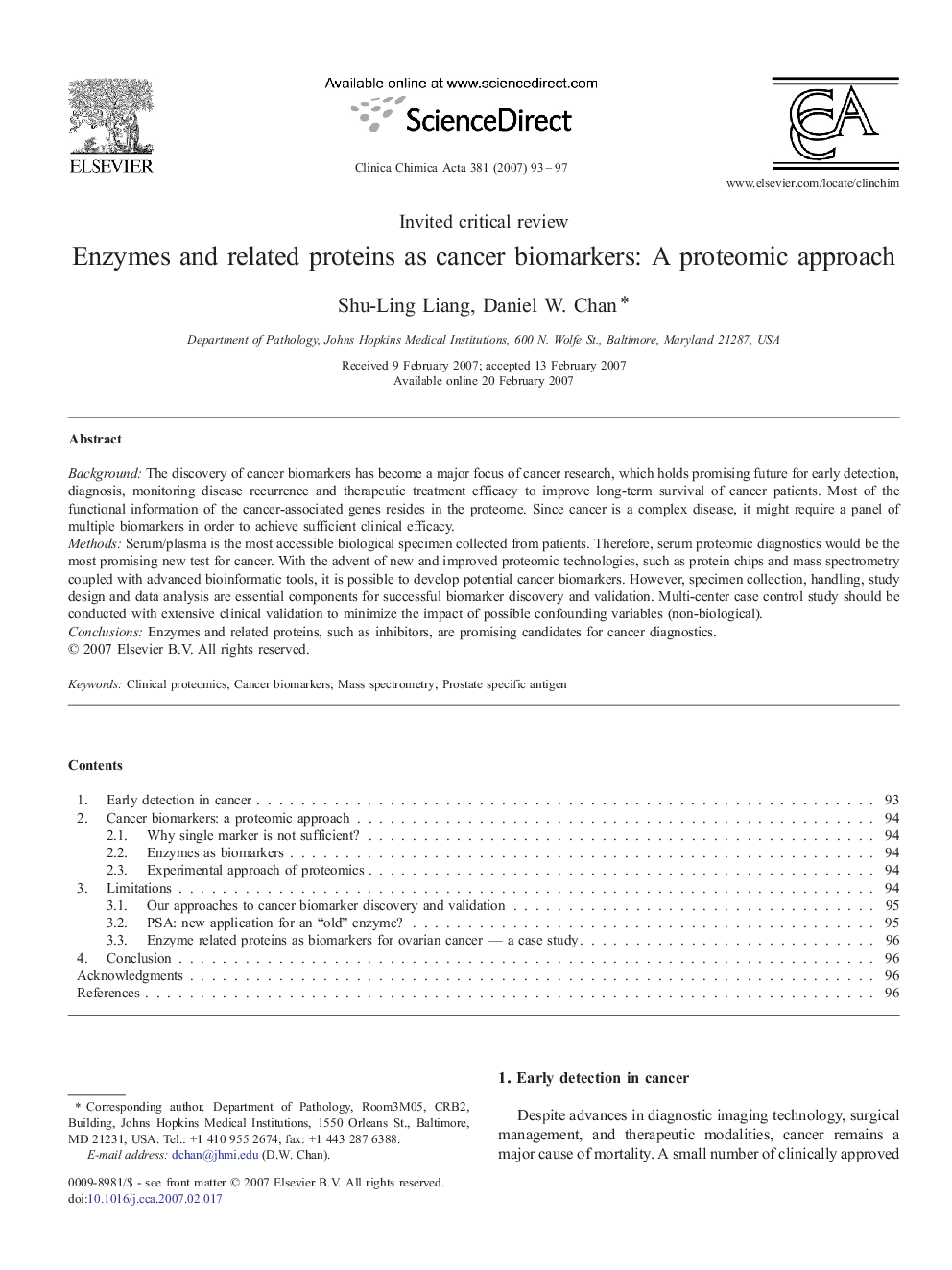| Article ID | Journal | Published Year | Pages | File Type |
|---|---|---|---|---|
| 1967439 | Clinica Chimica Acta | 2007 | 5 Pages |
BackgroundThe discovery of cancer biomarkers has become a major focus of cancer research, which holds promising future for early detection, diagnosis, monitoring disease recurrence and therapeutic treatment efficacy to improve long-term survival of cancer patients. Most of the functional information of the cancer-associated genes resides in the proteome. Since cancer is a complex disease, it might require a panel of multiple biomarkers in order to achieve sufficient clinical efficacy.MethodsSerum/plasma is the most accessible biological specimen collected from patients. Therefore, serum proteomic diagnostics would be the most promising new test for cancer. With the advent of new and improved proteomic technologies, such as protein chips and mass spectrometry coupled with advanced bioinformatic tools, it is possible to develop potential cancer biomarkers. However, specimen collection, handling, study design and data analysis are essential components for successful biomarker discovery and validation. Multi-center case control study should be conducted with extensive clinical validation to minimize the impact of possible confounding variables (non-biological).ConclusionsEnzymes and related proteins, such as inhibitors, are promising candidates for cancer diagnostics.
